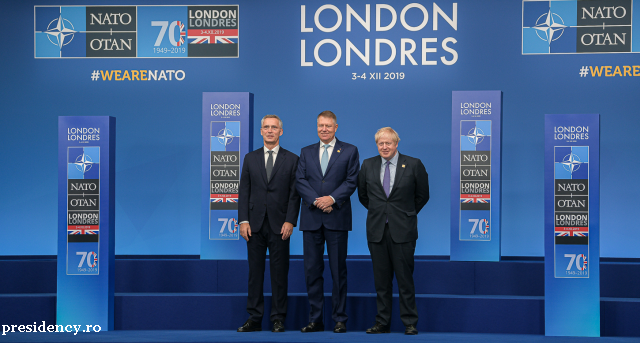NATO sends message of unity
NATOs 70th anniversary summit in London ended with a message of unity despite disagreements among member states.

Corina Cristea, 05.12.2019, 13:55
All for one, one for all, is the
message conveyed by the NATO secretary general Jens Stoltenberg at the end of
the NATO summit held over the course of two days in London and which brought
together the leaders of the member states of this military alliance established
70 years ago. The top-level meeting ended with a joint declaration in which the
allied leaders called for solidarity, unity and cohesion despite significant
disagreements on different subjects. In the document, NATO reaffirms its
defensive nature and commitment to disarmament, but emphasises that it will
remain a nuclear alliance as long as such weapons exist. This is why it
underlines that it will continue to strengthen its capacity to deter and defend
itself with an appropriate mix of nuclear, conventional and missile defence
capabilities, which it will continue to adapt.
Disagreements within the alliance
are inevitable when 29 world leaders are at the same table, but there are
common views when it comes to ensuring security, fighting terrorism or the
challenges posed by Russia, Jens Stoltenberg emphasised. The joint declaration
also speaks about embarking on a reflection process about the future of the
North Atlantic Alliance, a decision welcomed by the French president Emmanuel
Macron. The latter upheld his view that the alliance is brain dead, being
particularly unhappy with Turkey’s intervention in Syria and its purchasing a
Russian missile defence system. We have started to address how we can include China
in relevant arms control arrangements in the future, said Jens Stoltenberg,
adding that this process has just begun, but that it is an important step made
by the NATO leaders. US president Donald Trump, however, said he convinced the
allies that the Chinese telecommunications firm Huawei is a security risk.
Speaking about NATO’s prospects
for development, Romania’s president Klaus Iohannis, who attended the summit,
said a reflection process is now needed. We must establish together what are
the threats NATO must face, how to approach international terrorism and how to
approach the theatres of war, where NATO is not present as an organisation, but
where some of its members are present, said the Romanian president.






























